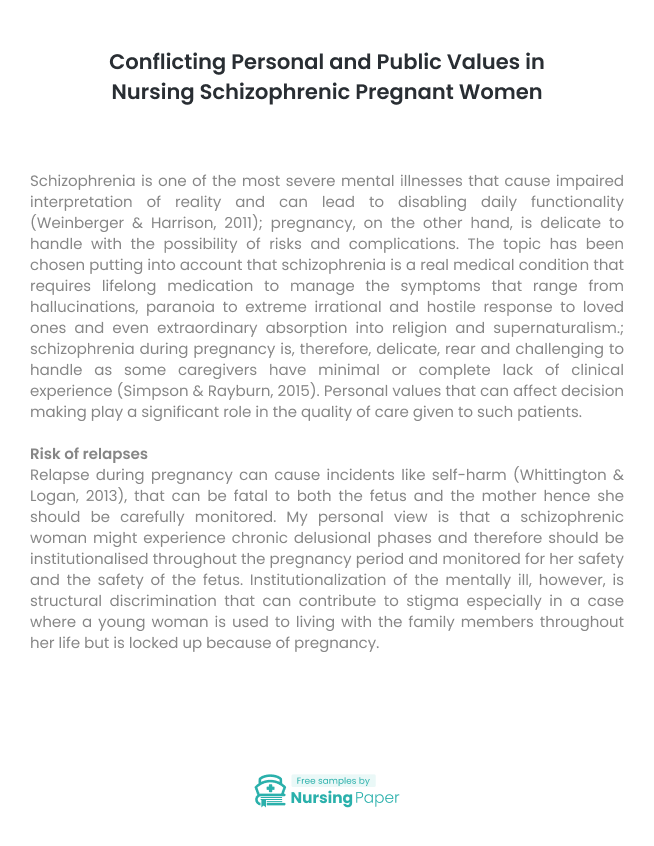1. Paprocki, C. M., 2014. When Personal and Professional Values Conflict: Trainee Perspectives on
2. Tensions Between Religious Beliefs and Affirming Treatment of LGBT Clients. Ethics & Behavior, 24(4), pp. 279-292.
3. Pickles, D., De Lacey, S. & King, L., 2017. The conflict between Nursing Student’s Personal
4. Beliefs and Professional Nursing Values. Nursing Ethics. 2017, 969733017738132, 24(7), p. 789.
5. Preece, P. M. & Riley, E. P., 2011. Alcohol, Drugs, and Medication in Pregnancy: The Long
term Outcome for The Child. London: Mac Keith Press.
6. Ringwalt, C., Roberts, A. W., Gugelmann, H. & Skinner, A. C., 2015. Racial Disparities Across
7. Provider Specialties in Opioid Prescriptions Dispensed to Medicaid Beneficiaries with Chronic Noncancer Pain. Pain Medicine, 7(2), pp. 119-134.
8. Simpson, L. L. & Rayburn, W. F., 2015. Best Practices in High-Risk Pregnancy. Philadelphia,
9. Pennsylvania: Elsevier.
10. Tsuang, M. T., Faraone, S. V. & Glatt, S. J., 2014. Schizophrenia. Oxford: OUP Oxford.
11. Weinberger, D. & Harrison, P., 2011. Schizophrenia. Chichester, West Sussex, UK: Wiley
12. Blackwell.
13. Whittington, R. & Logan, C., 2013. Self-harm and Violence: Towards best practice in Managing
14. Risk in Mental Health Services. Hoboken, N.J.: Wiley Blackwell.

The download will start shortly.



 Subject:
Subject:
 Number of pages: 6
Number of pages: 6